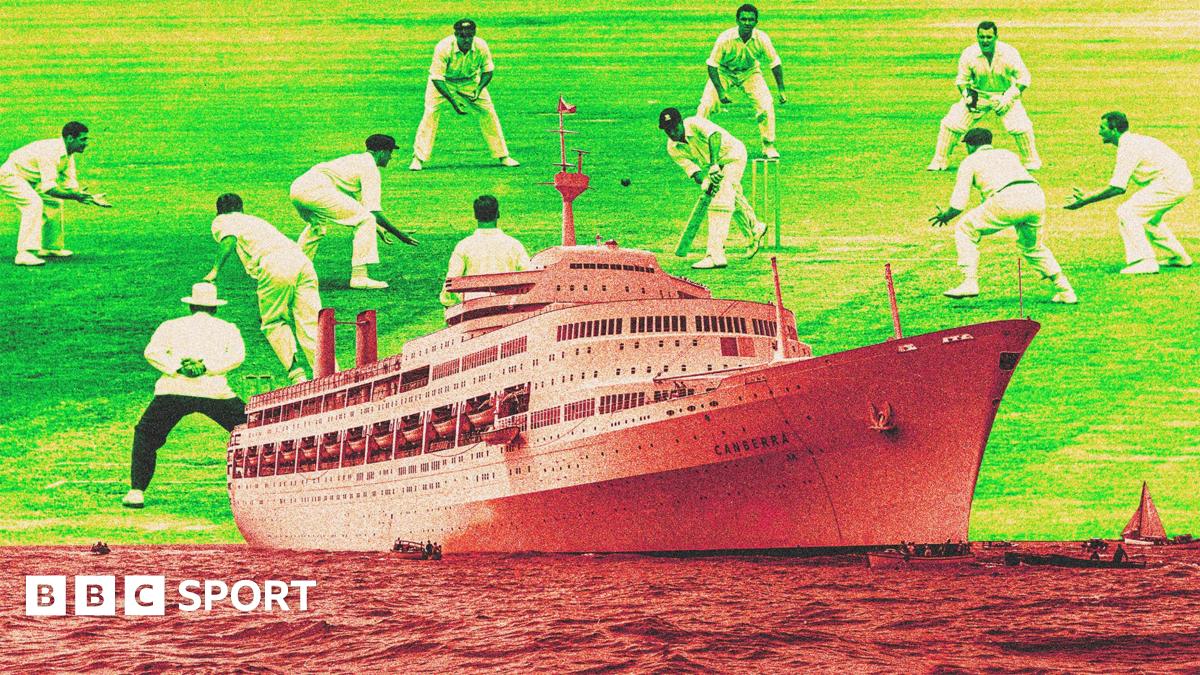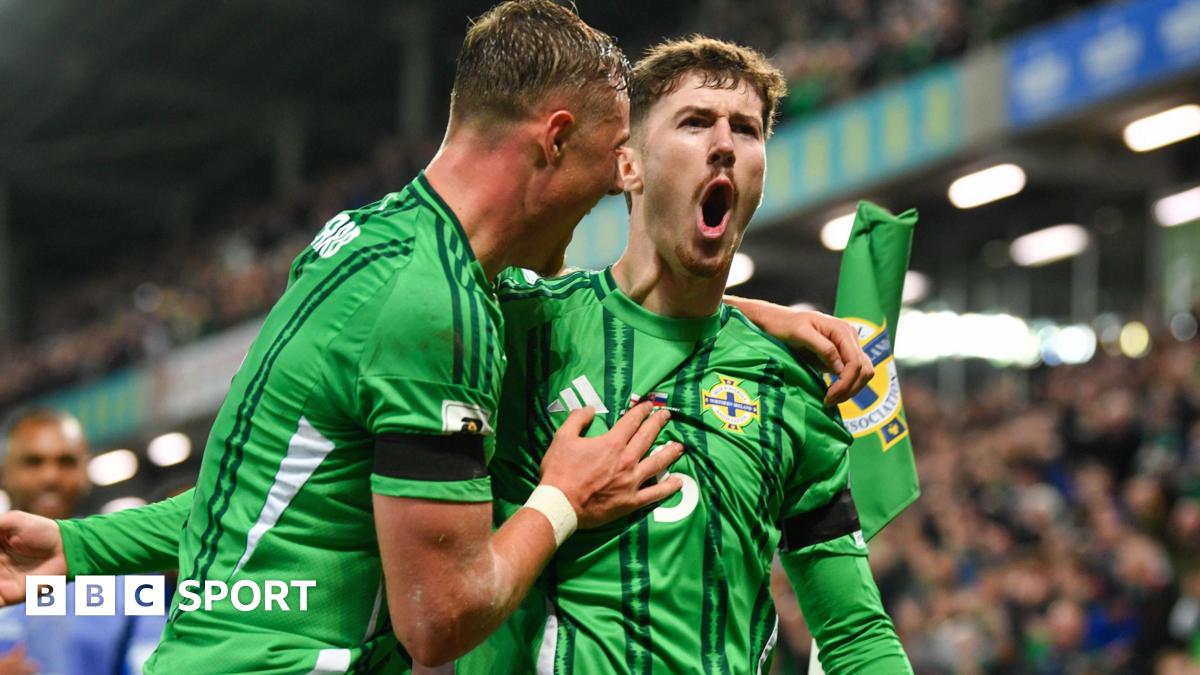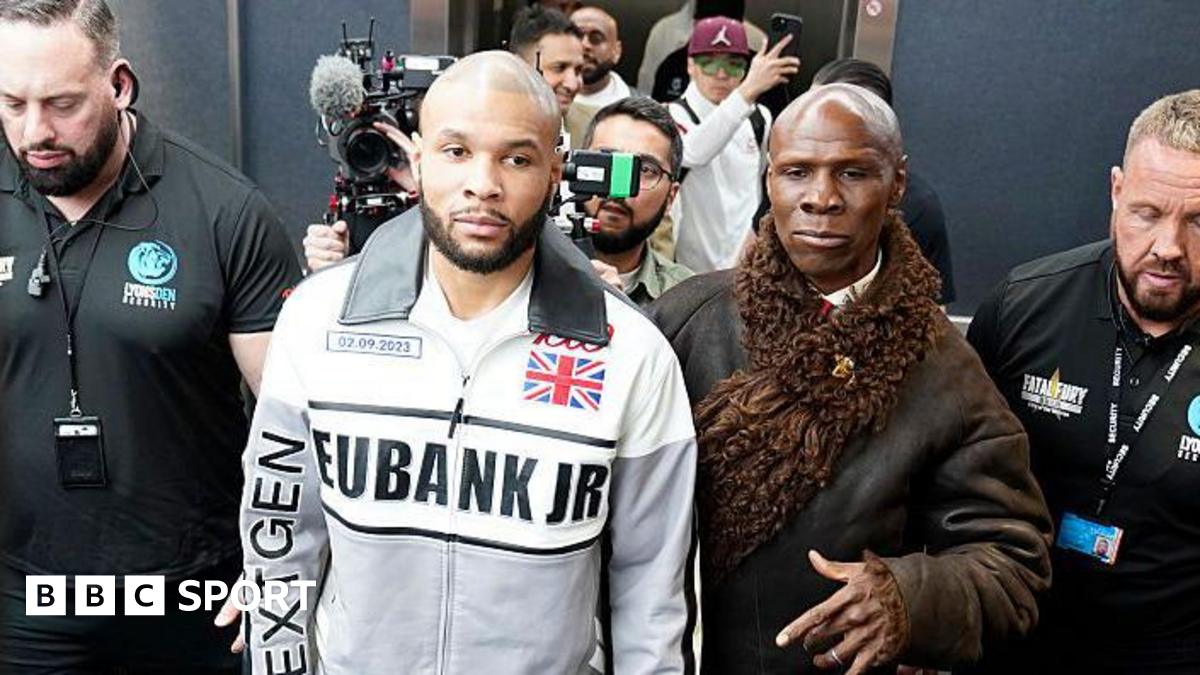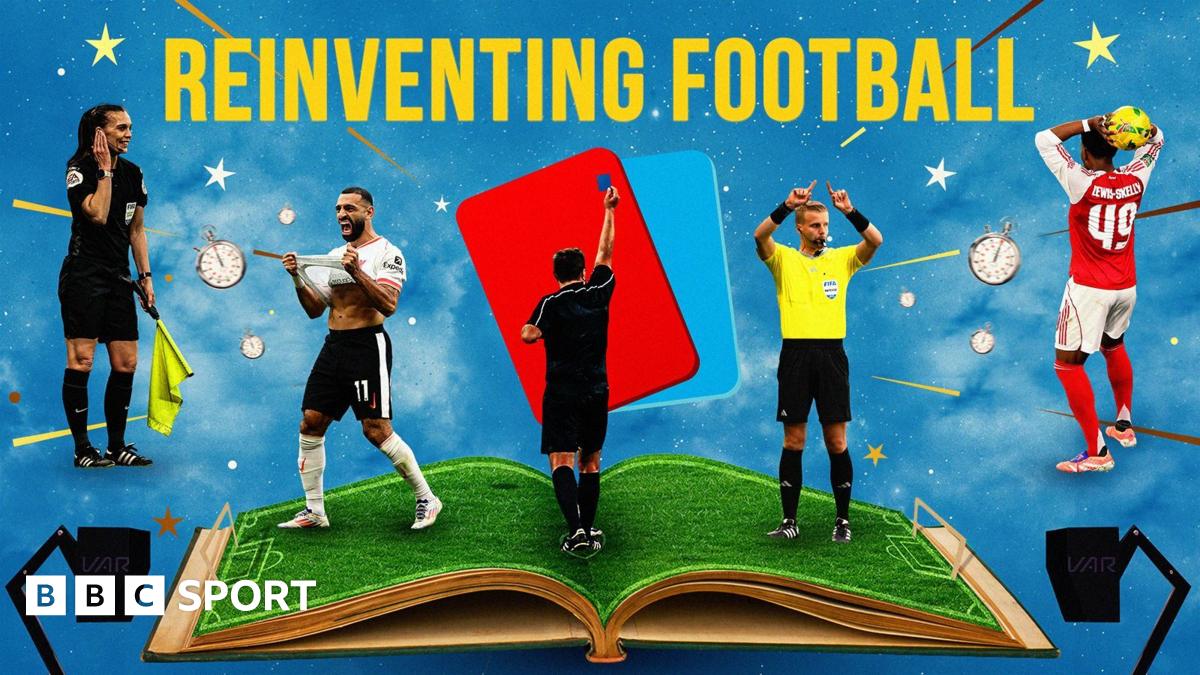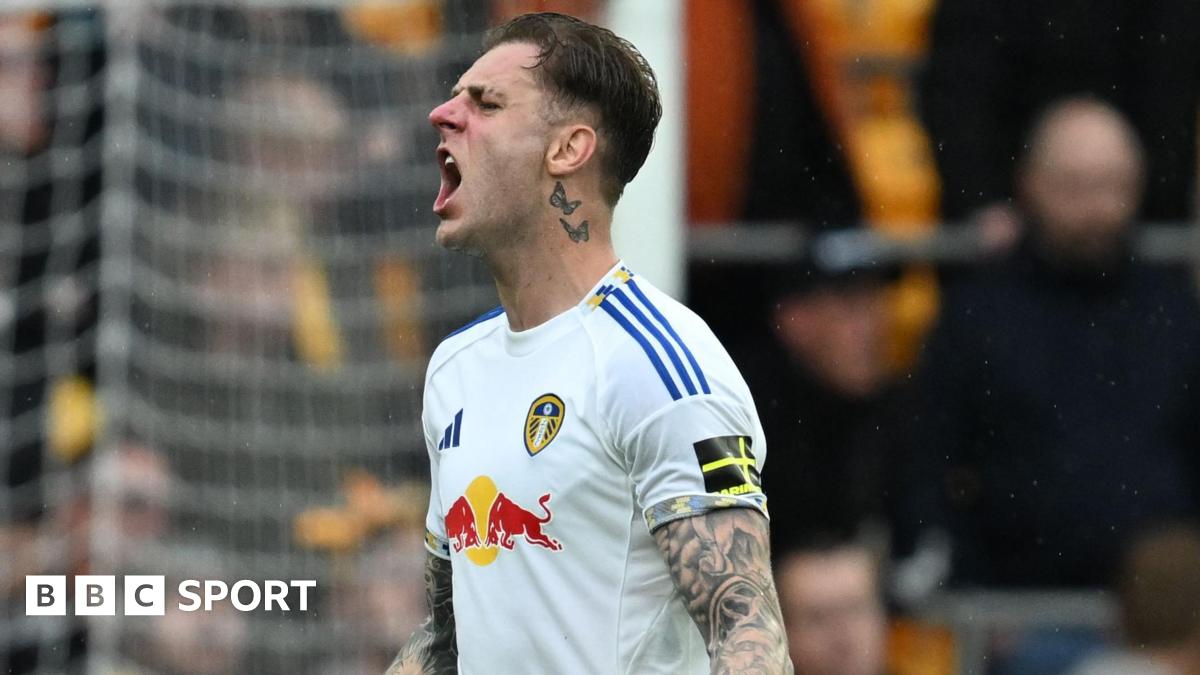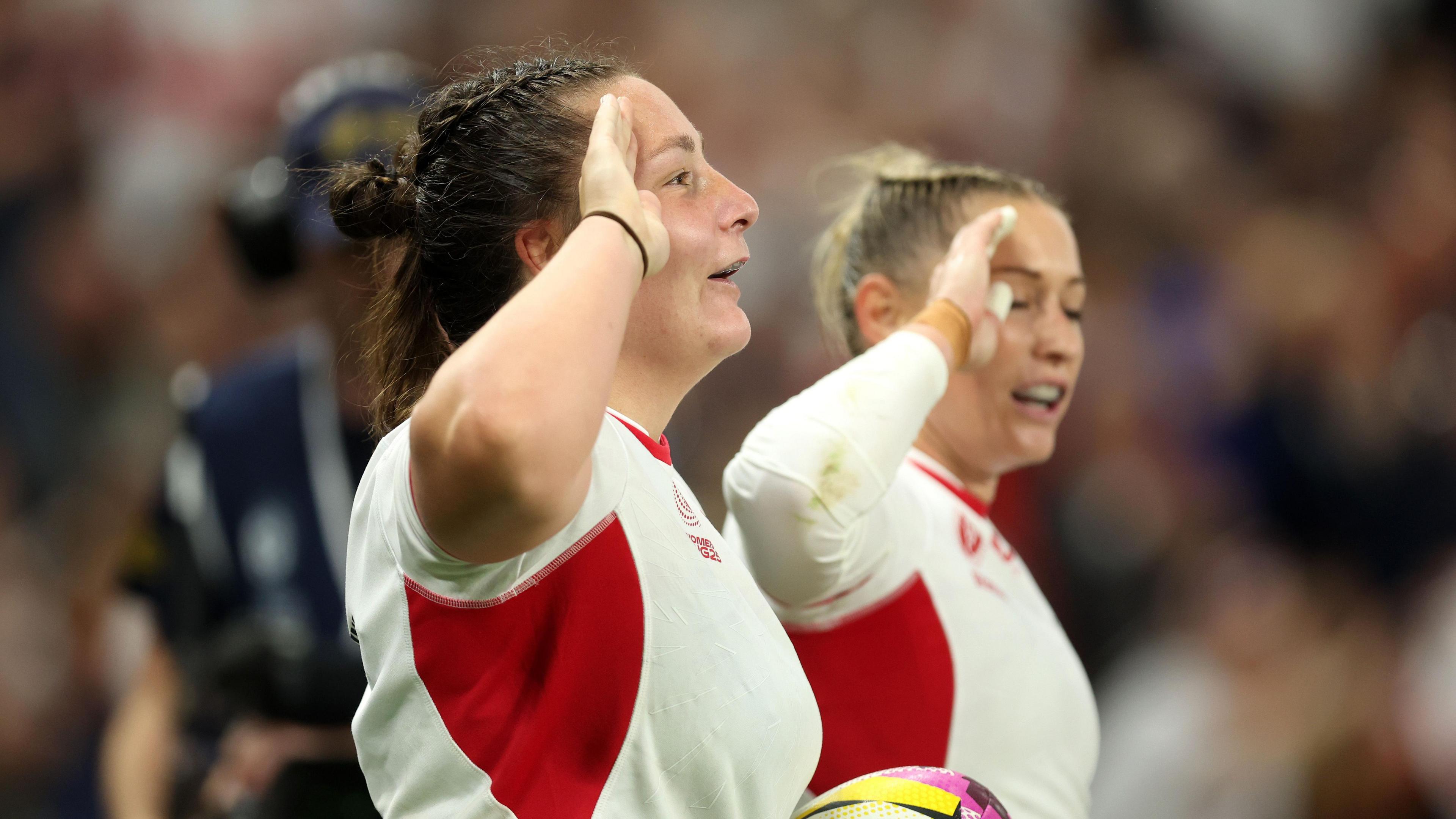 Image source, Getty Images
Image source, Getty Images
Amy Cokayne celebrated with a military salute - a tribute to her job with the RAF - after scoring against USA
ByEmma Smith
BBC Sport journalist
Hooker Amy Cokayne is one of the few England players to still have a day job since professionalism came into the women's game six years ago.
The 29-year-old will play in her third successive Women's Rugby World Cup final this Saturday, but alongside her rugby career she is also a police officer in the RAF.
The RAF's Elite Athlete Scheme allows Cokayne to focus on her dream of lifting the World Cup while maintaining her military career in the background.
This weekend, the Flight Lieutenant will aim to keep the Canada pack in check at Twickenham, before at some point returning to her role of keeping pilots in order.
"I've never arrested anyone," she told BBC Radio 5 Live's Barely Rugby podcast this week. "I've done all my training, but I can't imagine I will - I'm an officer, so I imagine I'll just send someone."
Cokayne, who comes from a military family, entered the RAF in 2017, after England lost the World Cup final, and even gave up rugby for a year.
"After the World Cup loss, I felt I needed something outside of rugby, to figure out a career," she told ESPN.
"I think this has actually helped my rugby career, having that time away and realising I still love the sport. I still have that career to go back to when I hang up my boots.
"I'm really fortunate the air force support me to do rugby full time through the elite athletes scheme - but I try to help out where I can."
It is a very different scenario now to when England last won the World Cup in 2014, where an entirely amateur side beat Canada in Dublin before going back to their daily lives shortly after.
Captain Katy Daley-McLean was a primary school teacher in Sunderland, while vice-captain Sarah Hunter was a university rugby development officer for the RFU.
Veteran back row Marlie Packer was part of the 2014 winning squad, where a week after lifting the trophy she was back at her job as a plumber - having had to take seven weeks of unpaid leave to prepare for and play in the World Cup.
"The customers I've been able to tell about it, they have been overwhelmed to see the medal and stuff - it's really cool," she told BBC News in 2014, while fixing a toilet.
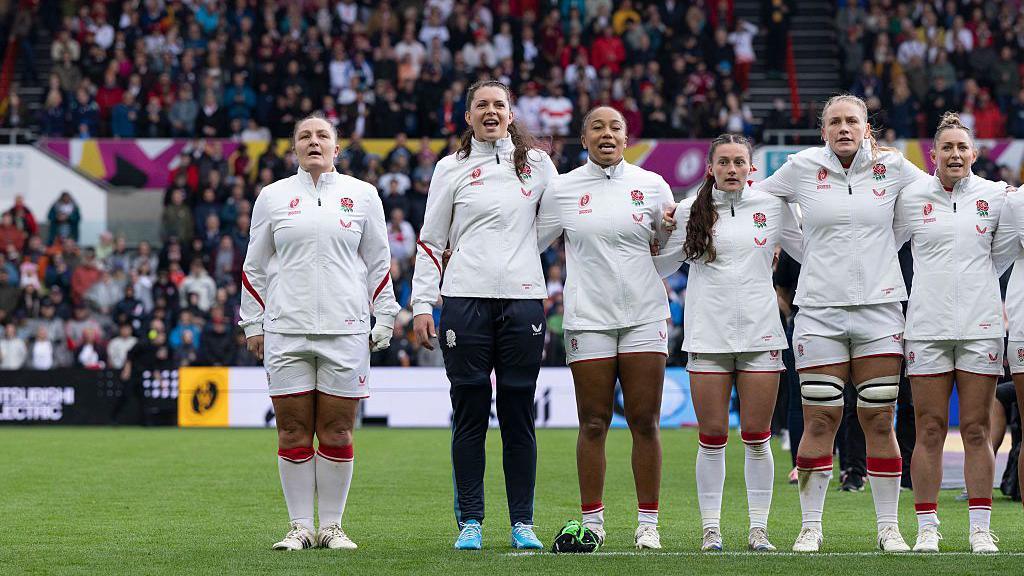 Image source, Getty Images
Image source, Getty Images
Cokayne positions herself at the end of the line to stand to attention during the national anthem
'I absolutely loved teaching'
At the time, Packer said she was hopeful of one day being able to play rugby professionally for a couple of years before going back to plumbing. But given the change in landscape for women's rugby in England over the past decade, she may never have to put down the rugby ball and pick up the wrench again.
"At the moment I'm doing my level three coaching award. I've had my level two for years," she told BBC Radio Somerset in May.
"I think the sport has given me so much - not just to the person I am today but I've travelled the world, I've got friends all over the world."
England are one of the very few fully professional nations in women's rugby, which has played a part in making them number one in the world rankings and favourites for the World Cup final.
Opponents Canada, despite being number two in the world and having several players in the professional Premier Women's Rugby in England, launched a crowdfunding campaign to boost their chances of competing against the bigger nations.
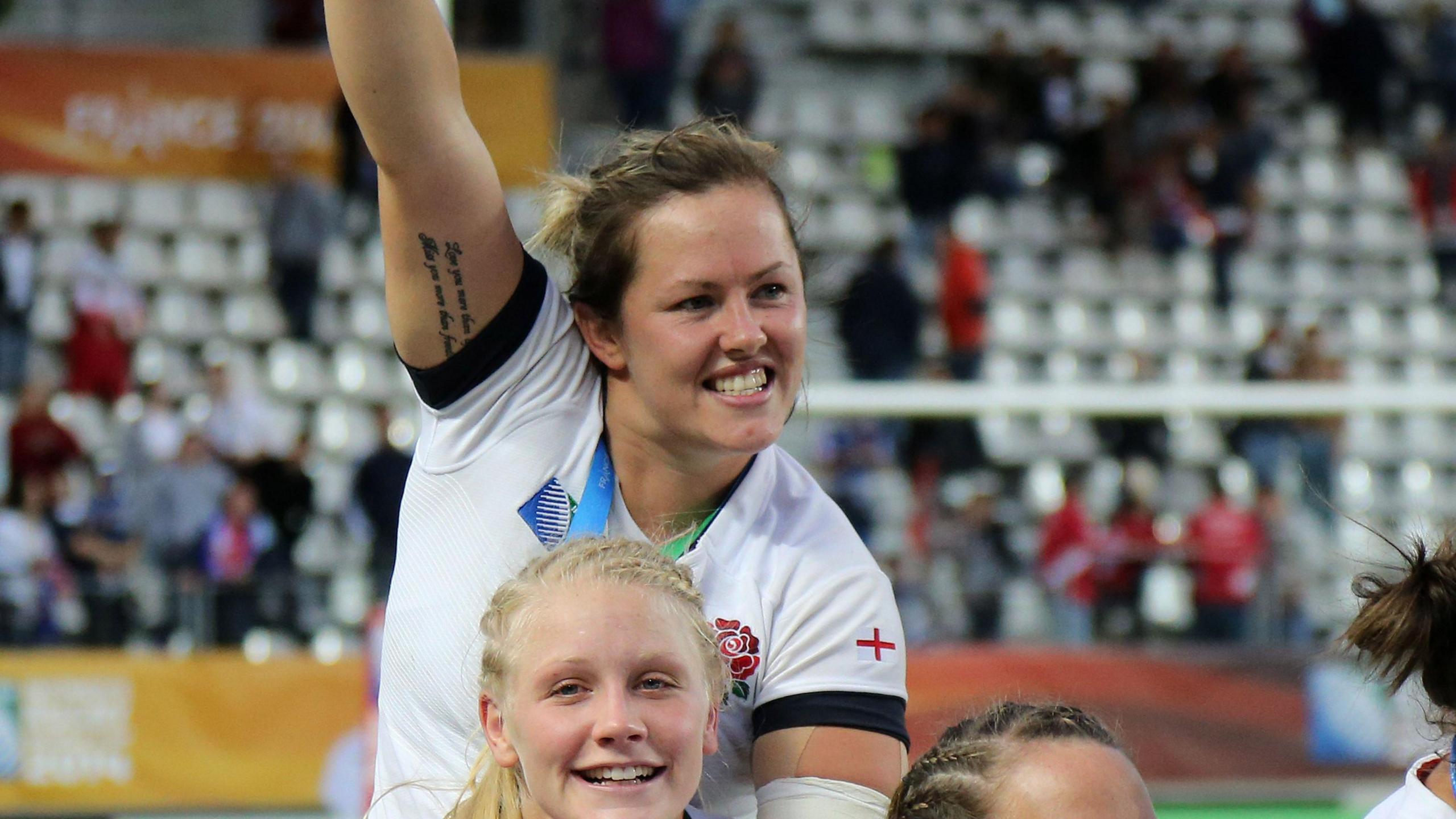 Image source, Getty Images
Image source, Getty Images
Marlie Packer went back to working as a plumber after helping England win the 2014 World Cup
But while the top of the English game is able to properly support professional athletes, many of the stars who will line up at Twickenham this weekend had to find other ways to support themselves before reaching that level.
Front row stalwart Lark Atkin-Davies was a primary school teacher before she played rugby professionally.
"It's nice to reflect sometimes and see the journey that you've been on," she said.
"It's not always been smooth sailing for me and I think there were some difficult times but obviously being professional for the last six years, I absolutely love it.
"Hand on heart, I couldn't ask for a better job. I absolutely loved teaching and the children, but I still get those moments now when I interact with the children that come and watch the games."
'I thought I would be an Amazon driver for the rest of my life'
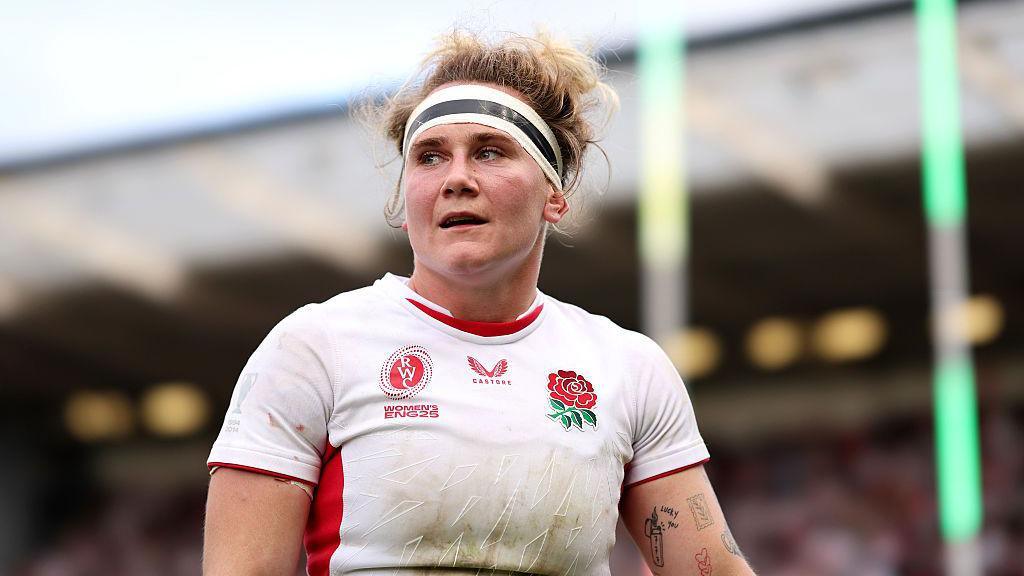 Image source, Getty Images
Image source, Getty Images
Meg Jones played for England at World Cups and the Olympics - but still had to find another job during the Covid lockdown
Another member of England's pack, Hannah Botterman, nearly took a very different path before professional rugby arrived.
"I was a painter and decorator, proper van life," she told the Barely Rugby podcast. "I was an apprentice for one of my mum's friends. I was working from 7am until 4pm, then I'd do a night shift at the Harvester.
"The plan with the painting and decorating was that I would take the business on while the woman I worked for would have a baby. But then I got a contract from England and sacked it off, just as I was good enough to do it myself."
Even the young, modern stars of women's rugby felt the pinch of a working life when the coronavirus pandemic hit. Several players were made redundant during covid - while the RFU kept the XVs squad on furlough, those on sevens contracts were not.
Meg Jones' speed, strength, industry and ability to be in the right place at the right time have made her arguably the best player at this World Cup.
But during Covid lockdown, she was contemplating a future working for Amazon.
"Toilet breaks are not really a thing. You're in at 5am and then you probably leave about 4pm without having to wee," said Jones, who by then had already been to a Rugby World Cup final. She had started the 2017 defeat by New Zealand at outside centre.
"It was scary. I'd never had another job in my life and suddenly my livelihood had gone. I just thought I was going to be an Amazon delivery driver for the rest of my life."
On Saturday, Jones and co will instead look to deliver a first World Cup title on home soil for England.
And if so, they will all know just how hard they had to work for that achievement, on and off the field.

 1 month ago
29
1 month ago
29



